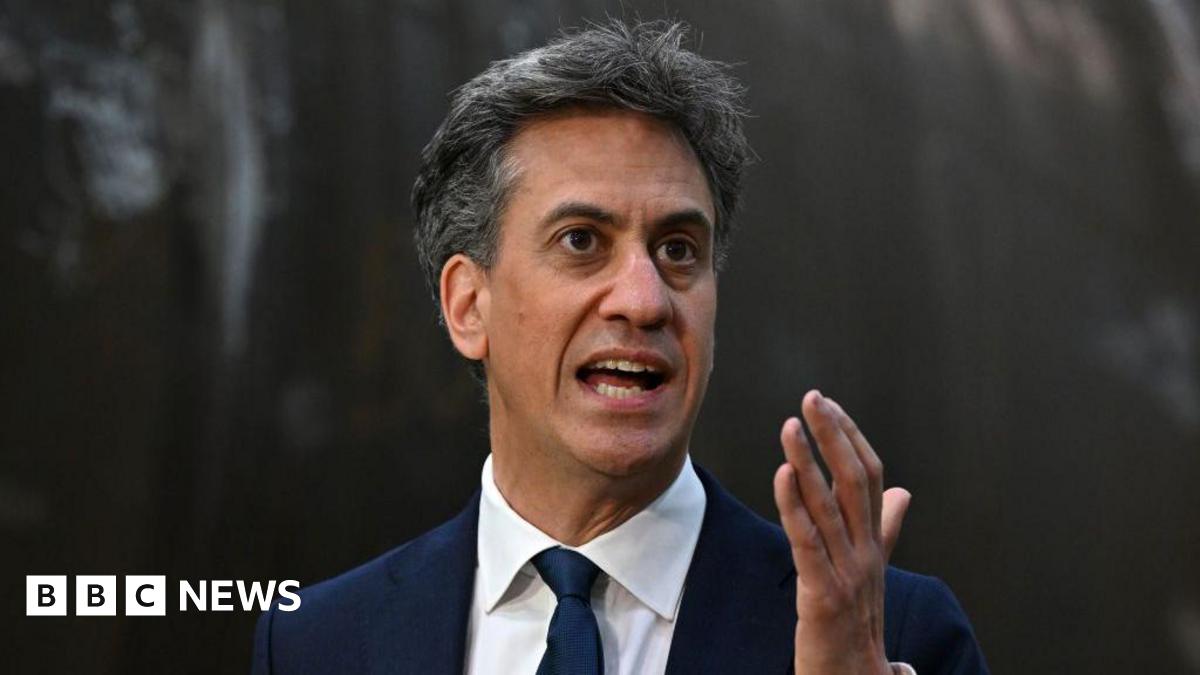Net Zero 'Nonsense': Miliband Slams Critics – A Deep Dive into the Heated Debate
The UK's ambitious net-zero targets have become a focal point of intense political debate, with Ed Miliband, the Shadow Climate and Net Zero Secretary, recently launching a scathing attack on critics he labels as peddling "nonsense." This article delves into the heart of the controversy, examining Miliband's arguments, the counter-arguments, and the broader implications for the UK's climate strategy.
Miliband's Fiery Rebuttal:
Miliband's recent statements have been characterized by strong rhetoric, directly challenging those who question the feasibility or economic viability of achieving net-zero emissions by 2050. He's accused critics of spreading misinformation and undermining the urgent need for climate action. His central argument hinges on the assertion that transitioning to a net-zero economy isn't just environmentally crucial but also presents significant economic opportunities, particularly in green jobs and technological innovation.
- Key Points of Miliband's Argument:
- Net-zero is achievable and economically beneficial in the long run.
- Delaying action will lead to far greater costs and risks in the future.
- Critics are ignoring the scientific consensus on climate change and its impacts.
- Investing in green technologies creates jobs and boosts economic growth.
The Critics' Counterarguments:
However, the criticism of net-zero targets isn't simply based on denial of climate science. Critics raise several concerns:
- Economic Feasibility: Concerns exist about the potential economic burden of achieving net-zero, particularly on specific industries and households. The cost of transitioning to renewable energy sources and implementing new technologies is a major point of contention.
- Energy Security: Critics argue that over-reliance on intermittent renewable energy sources like wind and solar could compromise energy security and lead to blackouts. The need for reliable baseload power generation remains a significant debate.
- Global Competitiveness: Some worry that ambitious net-zero targets could put the UK at a competitive disadvantage compared to countries with less stringent climate policies. This fear centers around increased energy costs and potential regulatory burdens on businesses.
The Bigger Picture: Beyond the Rhetoric
The clash between Miliband and his critics highlights a fundamental tension: balancing the urgent need for climate action with the economic and social realities faced by individuals and businesses. The debate isn't just about the science of climate change; it's also about political priorities, economic strategies, and the distribution of costs and benefits associated with the transition.
This debate raises crucial questions:
- How can the UK achieve net-zero while ensuring energy affordability and security?
- What role should government regulation play in driving the transition to a green economy?
- How can the benefits of a net-zero economy be distributed equitably across society?
Conclusion: A Necessary Conversation
While the rhetoric can be heated, the debate surrounding net-zero targets is crucial for shaping the UK's future. Finding solutions that address both environmental sustainability and economic prosperity requires a nuanced approach that goes beyond simplistic slogans and acknowledges the valid concerns of all stakeholders. The conversation must continue, focusing on practical solutions and evidence-based policymaking to pave a path towards a sustainable and prosperous future.
Further Reading:
This article aims to provide a balanced overview of the ongoing debate. Your thoughts and comments are welcome below. What are your perspectives on the net-zero targets and the criticisms leveled against them?

